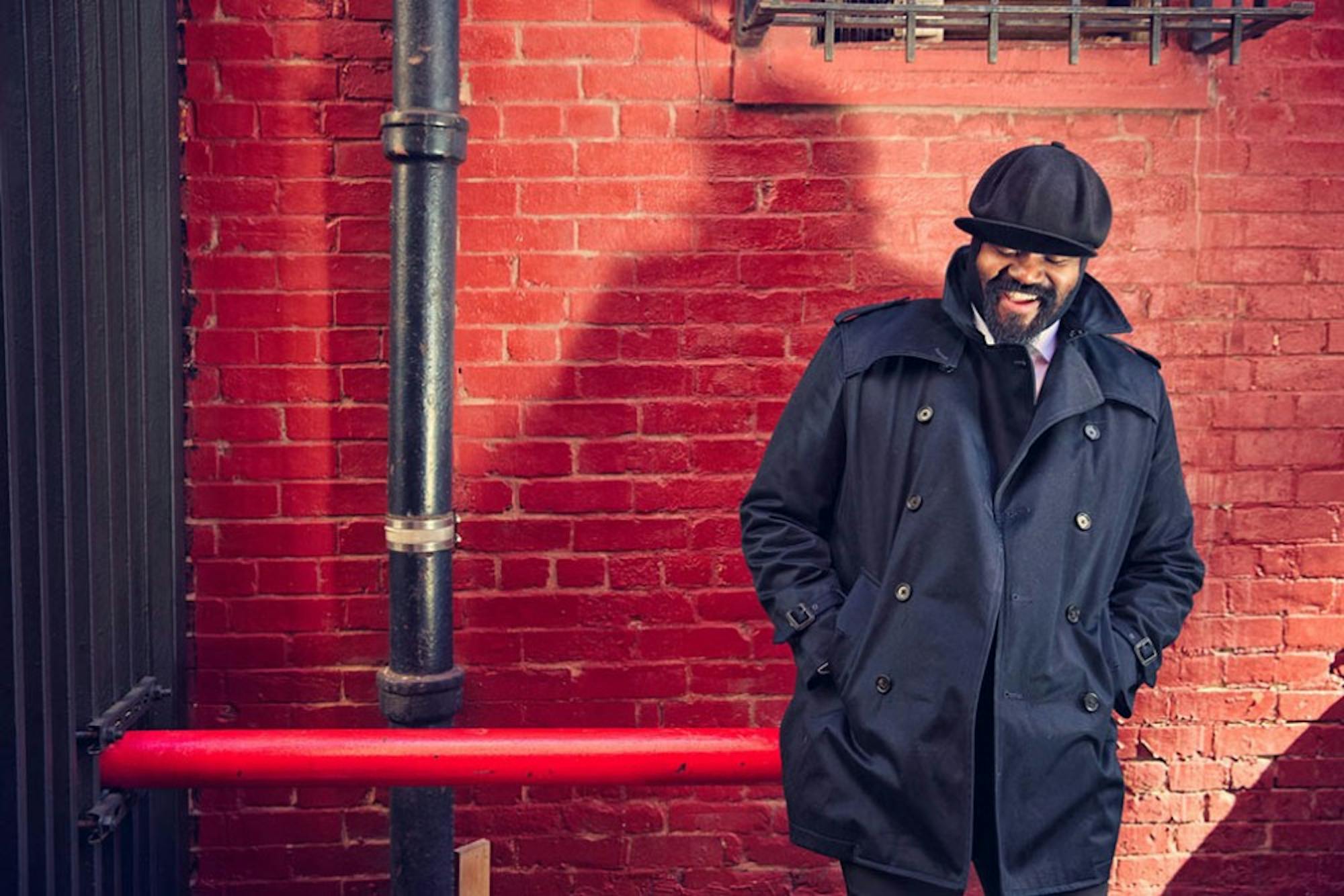This evening, contemporary jazz singer and songwriter Gregory Porter will bring his soulful, melodic style to audiences at the Hopkins Center for the Arts. Porter, who has won two Grammy Awards, most recently in 2017 for his album “Take Me to the Alley,” had an unorthodox rise to fame. He initially worked as a chef in New York and sang in various bars and restaurants in his spare time. Heavily influenced by Nat King Cole through his mother, Porter became a recording artist at the age of 40 when his independently-released debut album “Water” gained attention from studios.
Taylor Ho Bynum, director of the Barbary Coast Jazz Ensemble, said he was enthusiastic about the performance because of Porter’s voice.
“[Porter] really bridges roots and techniques [within jazz] but really bringing a contemporary vibe to it,” he said.
Bynum said he suggests audiences look for communication between Porter and his accompanying jazz band, which includes Chip Crawford on piano, Emanuel Harrold on drums, Tivon Pennicott on tenor saxophone, Jahmal Nichols on bass and Ondrej Pivec playing the Hammond organ. Because Porter is a veteran in the jazz genre and has played with his band for years, their chemistry is particularly special.
“They have developed a really intimate communication,” he said. “They know what songs they’re going to play [and] what’s going to happen in those songs. You can really hear the give and take, the response ... And I think one of the things that is great with [Porter’s] stuff is you can hear how much soul, how much funk and how much can be expressed with completely acoustic instruments.”
Barbary Coast trombone player Charlie Johnson ’19 said that although jazz can sometimes feel inaccessible, audiences should not be intimidated by Porter’s performance.
“Vocal jazz, which is what this upcoming concert has, is in general more tailored to be a pop tune because, back in the day, that was the popular music,” Johnson said. “I would say that vocal jazz is one of the easiest to approach forms of jazz, and I really like it as something to listen to alongside pop music.”
Connor Quigley ’21, who plays tenor saxophone for the Barbary Coast, said that a certain level of capability is necessary to effectively deliver a vocal jazz performance, which is something a bit out of the ordinary in terms of music experiences.
“The amount of talent it takes to play vocal jazz without all the aftereffects [of autotuning and sound engineering] is staggering,” he said.
Quigley said Porter’s tone can be characterized as smooth and soulful.
“He’s kind of associated with [Cole],” he said. “He associates him as one of his big influences, and if you listen to [Cole], you can hear that influence in [Porter’s] singing.”
Johnson said that there is something very honest and personal about Porter’s style, suggesting this may be one of the reasons why Porter’s music is so popular and resonates with so many people.
“I think that when you listen to a new form of music and [try] to find the humanity and the artistry in the music, [it] makes it so much more enjoyable,” he said. “And I think that [Porter], as well as a lot of other jazz musicians, have their own way of putting their own humanity and artistry into their music.”
Stephen Langley, the ensemble assistant at the Hop, said he agrees with Porter’s approach to the genre.
“Jazz can be seen, by some schools of thought, as a direct extension of the feel songs and spirituals that grew out of slavery,” he said. “Artists across genres ... have always been barometers for what is current and soon to be [in the] future in most societal groups. [Porter] is singing ... based on his past, singing his present and probably singing his future given current situations that we’re dealing with in this country.”
Langley said Porter’s lyrics often contend with the racism he himself experienced in America as an African-American. Porter’s songs are often mournful of the experiences he has witnessed, and Langley said he hopes audiences might be affected by his message.
“If I have a hope for folks going to this concert, [it’s] that they listen to [Porter’s] music and the lyrics but also the pain that he sings,” he said. “Hopefully, that can break through some [of the] indifference, and people can begin to see that pain is very present and it’s not going away.”
Porter and his band will perform tonight at Spaulding Auditorium.




